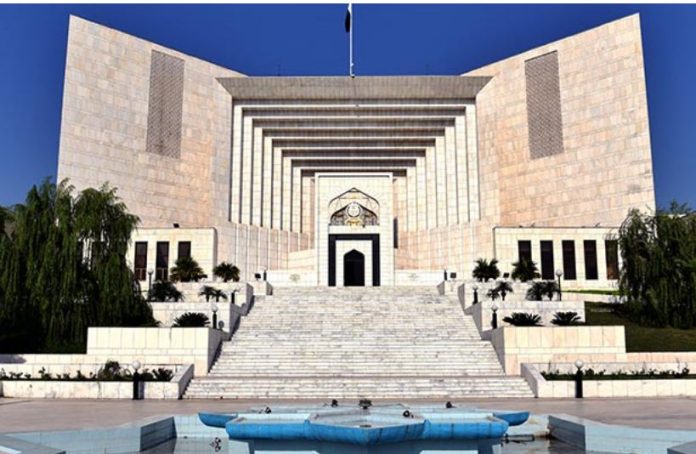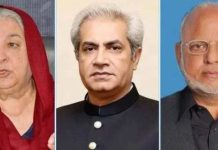ISLAMABAD, Jan 10 (DNA): Additional Attorney General Amir Rahman has informed the Supreme Court that around 5000 individuals are accused in May 9 riots. The 105 individuals, tired in the military courts were those whose presence was proven with undeniable evidence at the places attacked.
The seven-member Constitutional Bench of the Supreme Court, headed by Justice Amin ud Din Khan continued the hearing for the fourth consecutive day and adjourned the proceedings for Monday January 13.
Other Members of the bench include Justice Jamal Khan Mandokhail, Justice Muhammad Ali Mazhar, Justice Hasan Azhar Rizvi, Justice Musarrat Hilali, Justice Naeem Akhtar Afghan and Justice Shahid Bilal Hasan.
Counsel for the Ministry of Defense Advocate Khawaja Harris continued to argue before the Court in defense of the Military Courts in the guidance of questions raised by the Court.
Justice Musarrat Hilali asked the Counsel to inform the Court who writes judgements in Military Courts? ‘It is said that the officers who conduct the proceedings, send details to another office for writing a judgement. How can an officer write a judgement when he was not part of the proceedings?
Justice Naeem Akhtar Afghan remarked that it is commonly supposed that the procedure of trial in military courts is different. Tell us about the various stages of the trials in military courts with a precedent of some actual trial.
The Defense lawyer Khawaj Haris said that he will explain the procedure of the military courts in the second part of his arguments. However, the JAG Branch of the Army is properly consulted by the Commanding Officer before delivering a judgement. Army Act is a special law and procedure under a special law is different from the common law.
Justice Jamal Mandokhail remarked that there is a difference between the laws of army and the country. The Constitution protects fundamental rights of all citizens and the law has reasonably explained this. Referring to his experience as lawyer in appeals against the judgements of the military courts in Baluchistan High Court, Justice Mandokhail said that military courts allows the accused to appoint a lawyer of his choice and the proceedings are almost the same as in other courts.
Justice Hasan Azher Rizivi remarked that an officer is provided to the accused as friend to guide and facilitate him. Trial includes arguments of the lawyers and cross questioning of the witnesses. The only difference is that the judgement is delivered by an officer instead of judge.
On a question by Justice Musarrat Hilali regarding hijacking of the Army Chief Aircraft in 1999, Khwaja Haris replied that the accused of hijacking was not onboard but still he was convicted.
The court adjourned further proceedings to be held on Monday January 13.

















